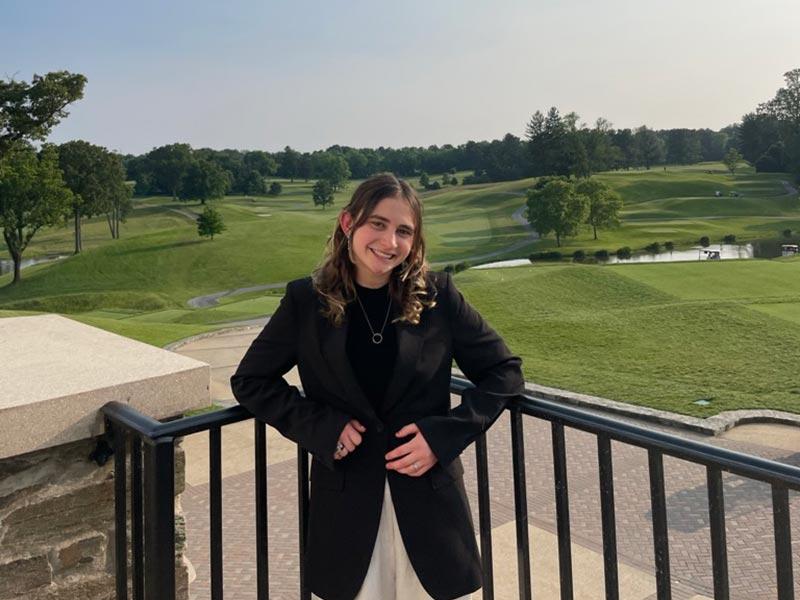Tulane student represents Louisiana in bipartisan policy program
A Tulane University student, Amelia Osborne, was chosen to represent the state of Louisiana in a selective bipartisan policy program.
The Henry Clay Center College Student Congress, a two-week bipartisan policy summer program, chooses 51 rising college seniors, representing each state and Washington, D.C., to learn about the dynamics of the policy process, diplomacy and modern leadership.
Students are selected to represent either their home state or the state in which they attend college. Amelia Osborne, a New Jersey native double majoring in Political Science and Social Policy and Practice on the pre-law track, was selected to represent Louisiana.
This year’s Henry Clay Center College Student Congress centered on polarization and bipartisanship — themes that caught Osborne’s attention since she is passionate about civil rights and anti-discrimination law along with advocacy and policy.
“The whole theme around it (the program) was to try to stop polarization in our country and teach the next generation of policymakers that compromise is the most important aspect of policymaking along with respect and understanding,” Osborne said.
She heard about the program from Scott Nolan, professor of practice in American politics in the Department of Political Science at the School of Liberal Arts.
“He sent out an email to the political science majors and kind of described it as a hidden gem in the political science world,” Osborne said.
It reminded Osborne of a transformative assignment during her sophomore year in one of Nolan’s classes.
“He assigned a book for us to read called Why We’re Polarized by Ezra Klein,” she said. “It gave such a new perspective on polarization in the U.S., and from a standpoint of policy issues, I realized how much polarization was hurting rather than helping that.”
Osborne pondered what she learned from the assignment and had discussions outside of the classroom with her peers. When she saw the Henry Clay Center College Student Congress’s goals, she knew it was something to pursue.
The program was held May 15-25 in Lexington, Kentucky, and Washington, D.C., on the campuses of the University of Kentucky and Georgetown University. Students participated in assignments, one in which they created a partisan policy proposal for an assigned topic and assigned political party. They were then tasked with collaborating and negotiating to create and present a single bipartisan policy proposal on their assigned topic. Students also toured the U.S. Capitol, U.S. Supreme Court and met with members of Congress, legislators, Capitol Hill staff, lobbyists and other policy experts.
Osborne described the College Student Congress as an “incredible” experience from which she came away with many new friends and connections in the political world. It was eye-opening for thinking about her career plans.
“I learned a lot of various kinds of career paths within the political science field and in D.C. that I hadn’t really considered previously,” she said. “I think the program shifted my perspective into wanting to participate more in the negotiations and compromise part of policy.”
It, too, instilled hope within Osborne and other participants.
“As we were leaving the program, we looked around the room and we had some of our speakers say, ‘We do have hope for the next generation’ because of the fact that we can all, from across all spectrums, sit and laugh and encourage each other in everything in our careers — that’s inspiring.”
After Tulane, Osborne plans to be a staffer on Capitol Hill, conduct advocacy work for nonprofit LGBTQIA+ groups and then go to law school. For other students pursuing policymaking, Osborne advises, “Respect and understanding is of the utmost importance. You need to be able to humanize every single person, no matter what their beliefs are.”

